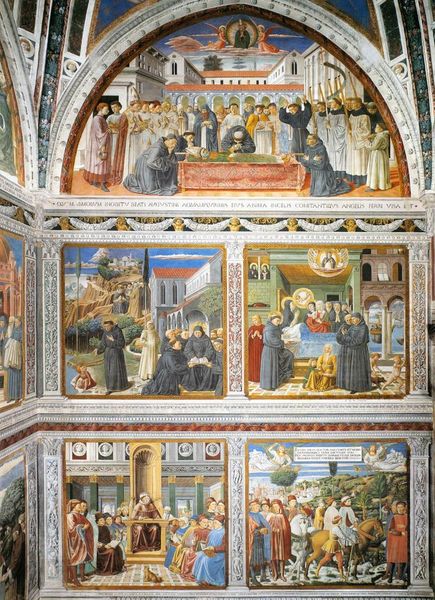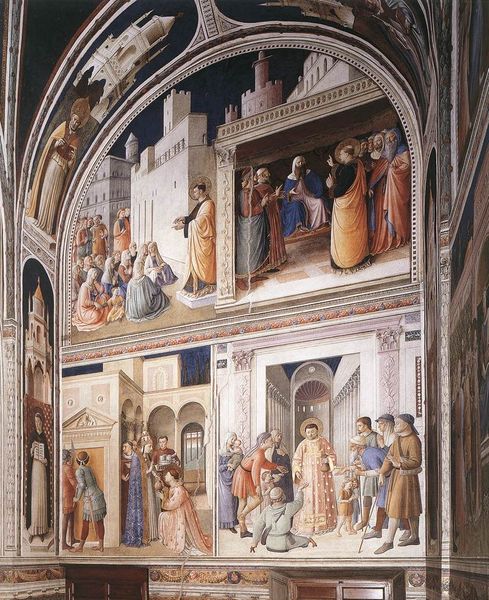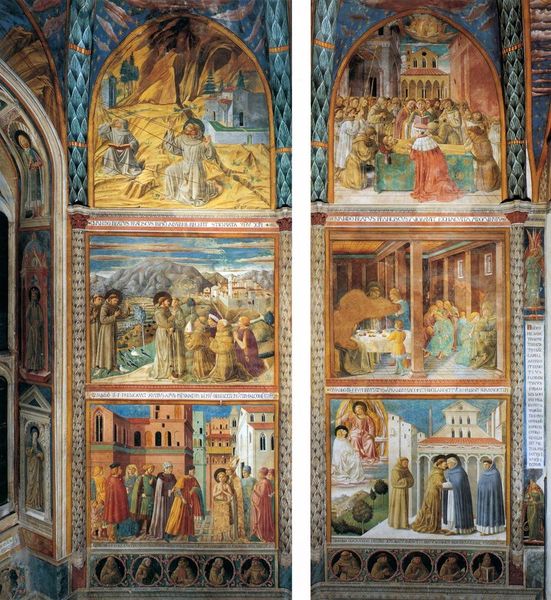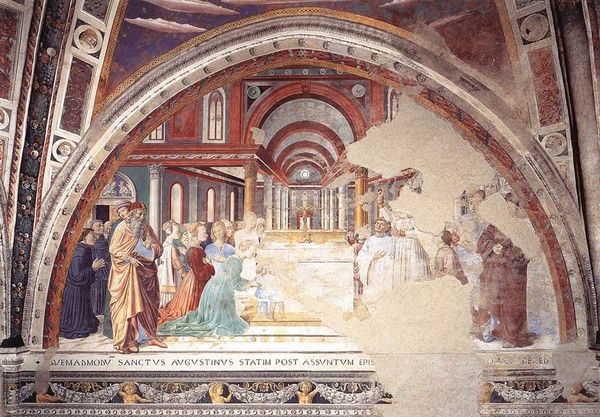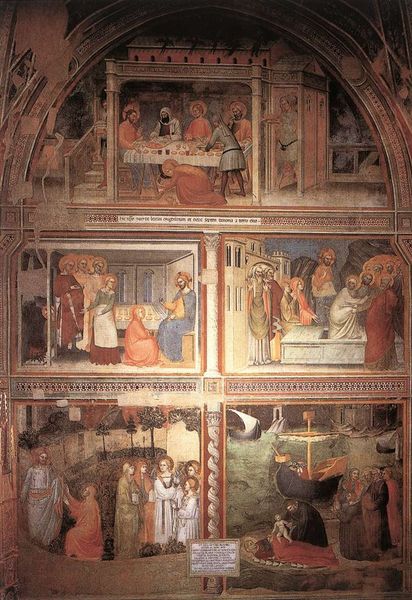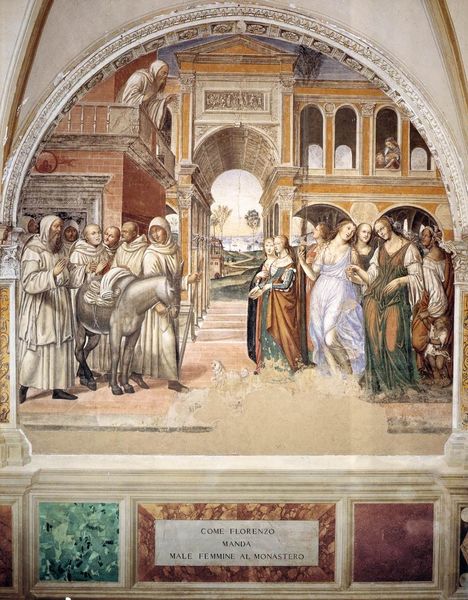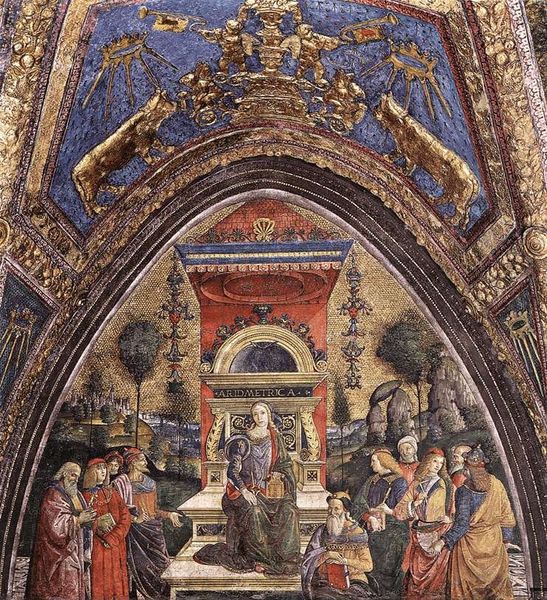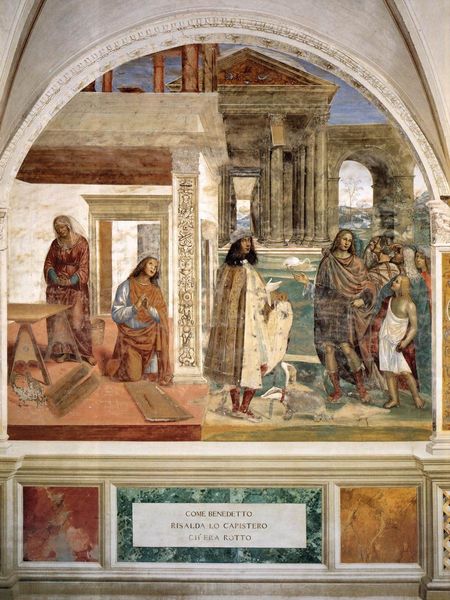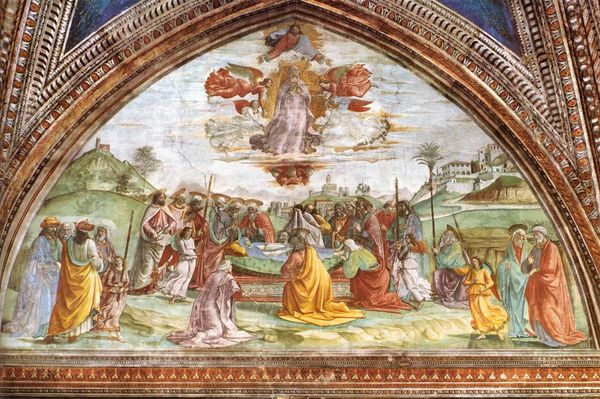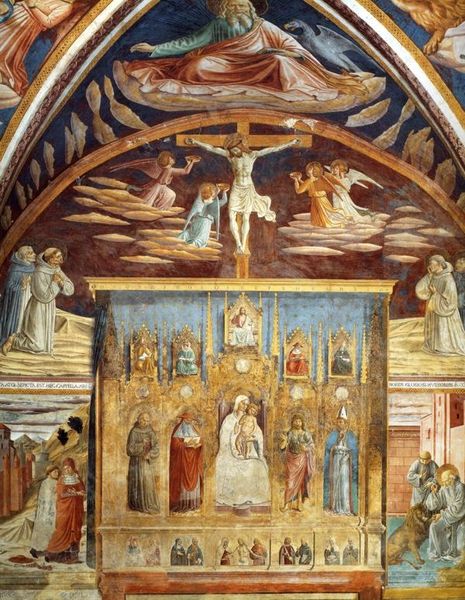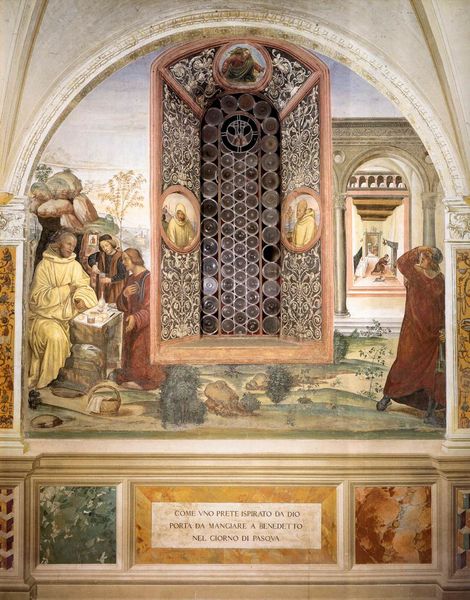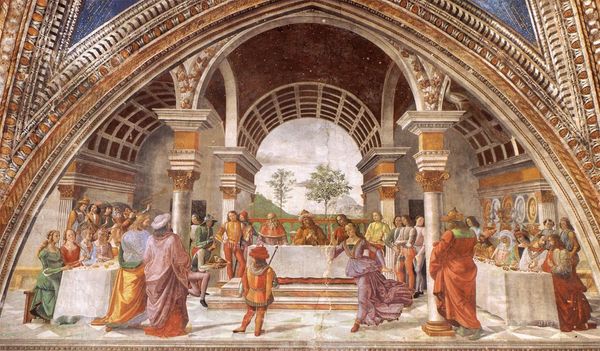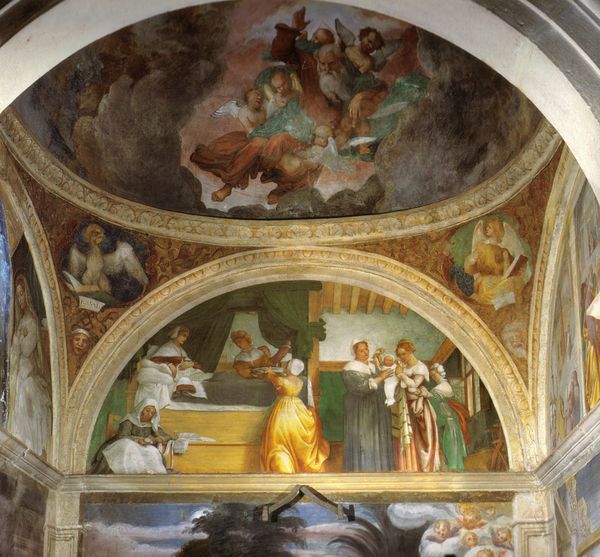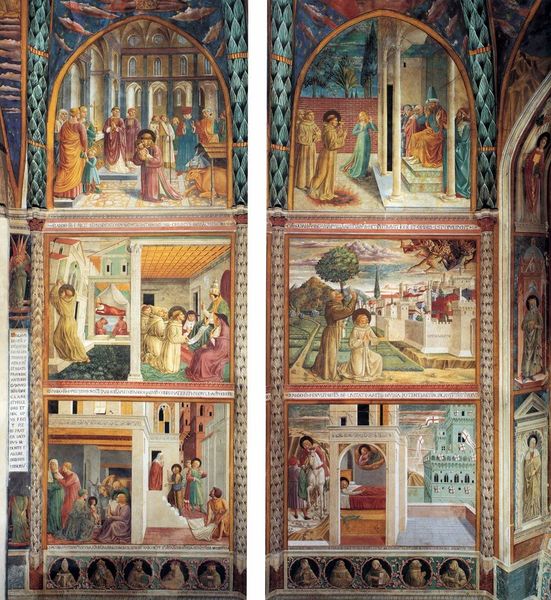
View of the Left Hand Wall of the Chapel 1465
0:00
0:00
benozzogozzoli
Sant'Agostino Church, San Gimignano, Italy
painting, fresco, mural
#
painting
#
holy-places
#
historic architecture
#
fresco
#
11_renaissance
#
traditional architecture
#
oil painting
#
urban art
#
christianity
#
history-painting
#
italian-renaissance
#
mural
#
historical building
#
christ
Copyright: Public domain
Benozzo Gozzoli painted this fresco on the left-hand wall of the chapel in the Sant'Agostino Church in San Gimignano. Fresco, meaning 'fresh' in Italian, is a technique where pigments are applied to a wall on wet lime plaster. As you can see here, this required careful planning and swift execution. Gozzoli would have prepared the wall surface with layers of rough plaster, then applied a final smooth layer called the 'intonaco'. The pigments, ground from minerals and plants, were mixed with water and applied directly onto the wet plaster. As the plaster dried, it would bind the pigment particles, resulting in a durable, matte finish. The seams you see here tell us about the daily labor involved. Each section of the mural was painted in a single session, which meant matching the complexity of the composition to the amount of time the artist had before the plaster dried. Ultimately, understanding the processes and materials of art, we can appreciate its history, and the social context in which it was created.
Comments
No comments
Be the first to comment and join the conversation on the ultimate creative platform.
